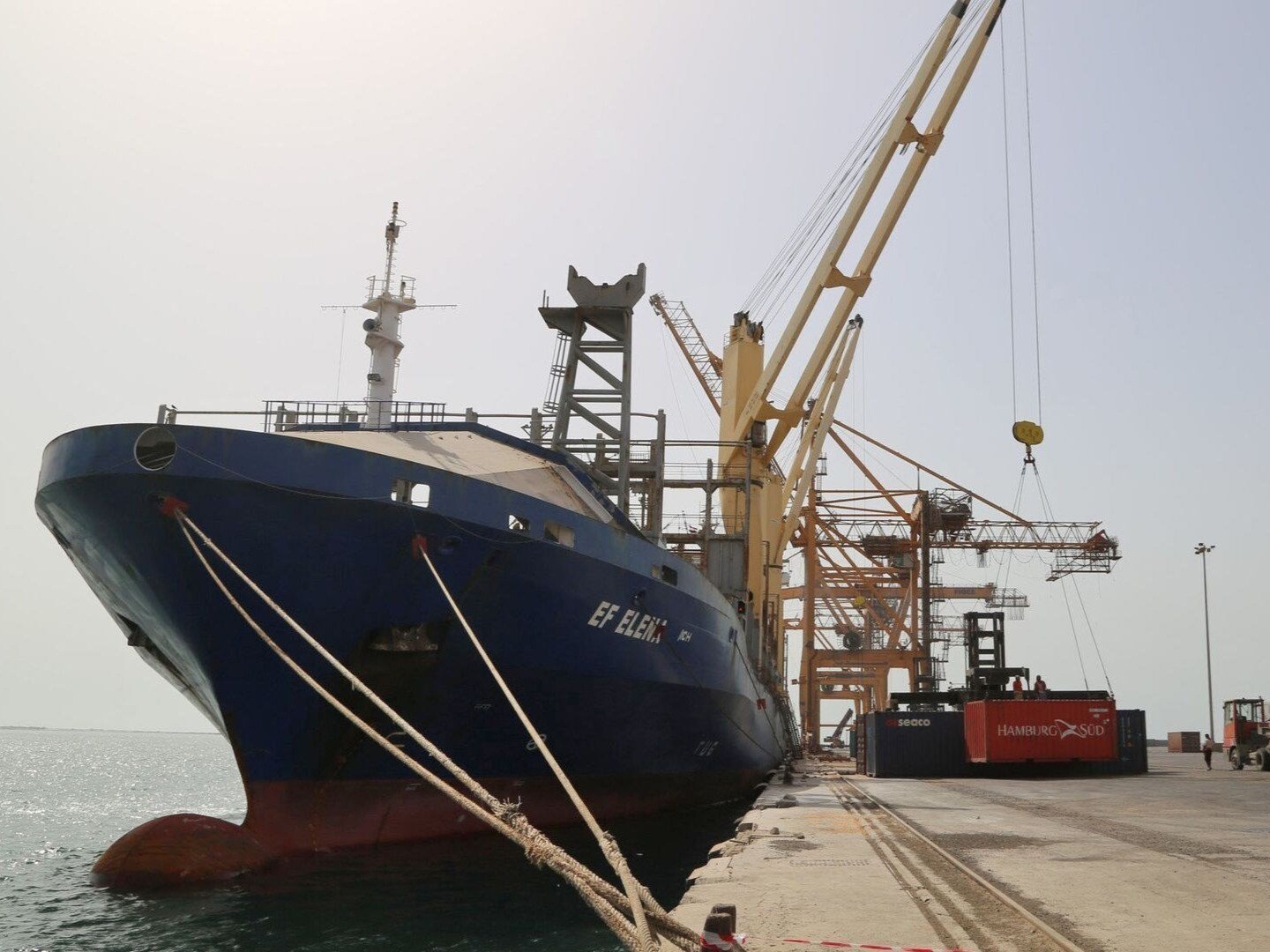Sanaa: Saudi coalition deliberately detains ships
The Minister of Oil and Minerals in the Sanaa government, Ahmed Abdullah Daris, accused the US-backed-Saudi-led coalition of detaining 5 oil derivative tankers and increasing the suffering of the Yemeni people.
-

the US-backed-Saudi-led coalition of deliberately seizing ships and profiteering from the suffering of the Yemeni people (Archive)
The Minister of Oil and Minerals in the Sanaa government, Ahmed Abdullah Daris, accused the US-backed-Saudi-led coalition of deliberately seizing ships and profiteering from the suffering of the Yemeni people.
Daris said in a press statement, on Saturday, that "the coalition of aggression is still holding five oil derivatives tankers, despite being inspected in Djibouti and obtaining entry permits from the United Nations," adding that "these arbitrary practices represent a clear obstruction to the armistice agreement sponsored by the United Nations, and even a clear violation of its terms."
He called on the United Nations to quickly release the remaining seized fuel ships, and not to obstruct them in the future, given that citizens are in need of these resources.
A few days ago, the Yemeni government of Sanaa accused the Saudi-led coalition of seizing two fuel ships while they were heading to the port of Al-Hudaydah in western Yemen, at a time when most Yemeni cities are experiencing a suffocating oil derivatives crisis.
The head of the Supreme Political Council in Yemen, Mahdi Al-Mashat, confirmed, during his meeting with the Minister of Defense, Major General Muhammad Nasser Al-Atifi, that"no breach of the armistice will be accepted," stressing "the necessity of disbursing all salaries of state employees and restoring the looted oil and gas revenues."
Al-Mashat condemned "what the mercenaries of the US-Saudi aggression are constantly doing in terms of looting the Yemeni people's oil and gas wealth, and depositing its price in the National Bank of Saudi Arabia."
And the Yemeni news agency, Saba, reported, in early August, that "the Saudi coalition looted crude oil and gas revenues in Yemen, equivalent to the salaries of all state employees for a period of 7 months."
-

The looted oil and gas from Yemen
Read more: Al-Mashat: If fuel ships do not enter port, decisions will be made

 2 Min Read
2 Min Read








